Four Rockets Fired At Syrian Base Hosting US Troops

Four rockets were fired Tuesday night in the vicinity of the Shaddadi Patrol Base, northern Syria, the largest base where US troops are stationed in the country.

Four rockets were fired Tuesday night in the vicinity of the Shaddadi Patrol Base, northern Syria, the largest base where US troops are stationed in the country.
According to a BBC correspondent, the attack on the base – located in al-Shadadi city 55 kilometers south of Al-Hasakah in the northeastern corner of Syria -- had no casualties and all the US-led coalition’s personnel are accounted for with no damage reported.
"The attempted strikes were ineffective and landed well outside the Coalition base. Our Syrian Democratic Partners quickly responded to the incident and have the lead for any further response," a senior coalition official said.
However, Syrian news agency SANA quoted local sources as saying that several rocket targeted “the illegal US occupation base,” one of which fell inside the base, claiming that loud explosions were heard by the people of the city and the surrounding areas and smoke plumes were billowing from the base.
The same base was attacked in January, with eight rockets landing inside its perimeter.
The attack occurred less than a week after the top US Air Force general in the Middle East, Lt. Gen. Alexus Grynkewich, warned of increasing attacks by Iran-backed militias against the United States and its allies as tensions rise in the region.
Iran’s Supreme Leader Ali Khamenei and President Ebrahim Raisi last week called for US troops to leave Syria, during the visit of Russia’s Vladimir Putin to Tehran.
No group has claimed responsibility for the Tuesday night attack but the US coalition operating in Syria and Iraq has repeatedly condemned Iran for attacks on its bases as repeated strikes have hit sites near American forces in the region.
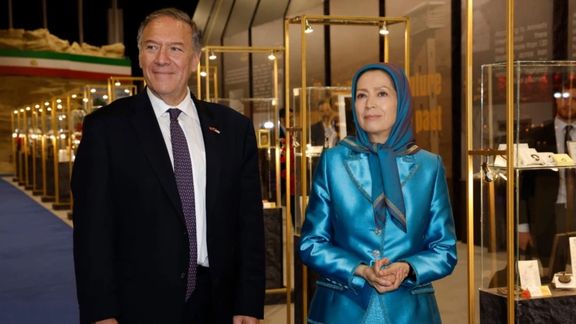
Iran’s Fars news website affiliated with the Revolutionary Guard Wednesday called for targeting an opposition group in Europe with ballistic missiles and drones.
In an article with a long historical background on violent terror acts by the Mojahedin Khalq organization, known as Mek in the 1980s, the IRGC mouthpiece insisted that Iran has the Islamic Republic has the right to self-defense and it would be justified if “it employs hard power against terrorists. The capabilities of Iran’s attack drones and ballistic missiles can be used to hit the center of the [Mek] in Albania without any legal impediment.
The article added that authorities in Tehran should issue the necessary warning to the Albanian government, which is hosting a few thousands MeK members, and follow it up with military action.
But Fars also mentioned “host governments”, where the MeK might have a presence, which could include France and others in Europe.
“If host governments refuse to expel and extradite the hypocrites (a term used by Tehran for the MeK), they should be threatened with reciprocal action…based on the doctrine of the Islamic Republic to fight security threats at their source,” the article said. It went on to cite the principle of “Responsibility to Protect” the nation and the UN Charter’s article 51, “which allows military action to preserve international peace and security.”
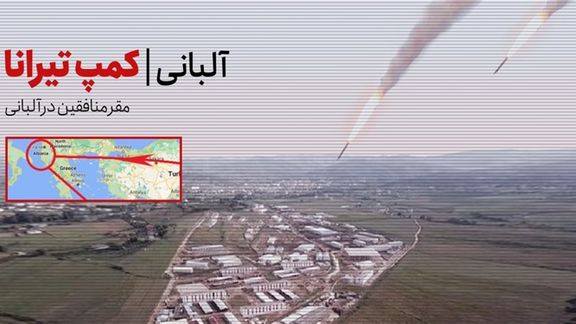
The Mojahedin were a revolutionary group engaged in opposition to the monarchy in the 1970s and carried out armed attacks. They fully backed Ayatollah Ruhollah Khomeini’s decision to set up the Islamic Republic in early 1979 after Shah Mohammad Reza Pahlavi left the country and Khomeini returned from exile. However, tensions rose between the group and the clerical regime taking shape, which led to mutual violence.
The MeK leadership fled to Iraq, which had attacked Iran in September 1980, and received protection from the Iraqi dictator Saddam Hussein who helped them form a militia and fight against Iran. The Islamic Republic counts this as high treason, in addition to violent acts the group carried out inside Iran.
In 1988, the Islamic Republic carried out a decision blessed by Khomeini to kill around 3,000 members of the group serving their prison sentences. Many say this is equivalent to war crimes and a crime against humanity.
An Iranian diplomat who plotted to bomb a MeK rally in Paris was convicted and sentenced to 20 years in jail on terrorism charges by a Belgian court, and a former prison Guard was recently sentenced to life in Sweden for his role in the 1988 prison killings.
MeK members and sympathizers gradually migrated to Europe and North America where they formed a close-knit organization, sometimes likened to a sect, which increasingly changed its path as a terror group to a relatively rich lobbying organization in the West against the clerical regime. However, a few thousand members who had stayed behind in a camp in Iraq were transferred to European counties and Albania by the United States and the United Nations in 2016.
The same year the group opened an office in Albania and is generally referred to as an Albania-based organization. Until a few years before the move, MeK was listed as a terrorist organization by the United States and the European Union, but as it became a lobbying and political entity, the designations were lifted.
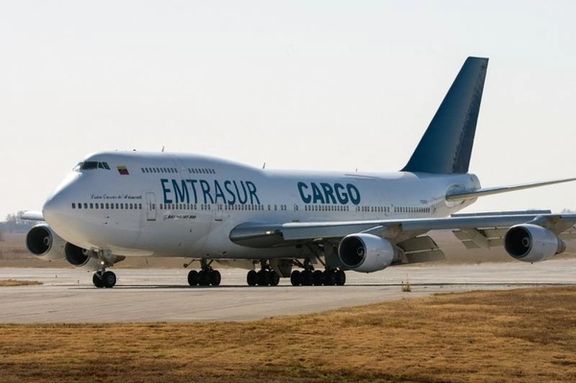
Eleven Republican Senators have sent a letter to the US attorney general for what they say is a delay in helping with information on Iranians held by Argentina.
The influential Senators, including Lindsey Graham, Marco Rubio and Chuck Grassley and Ted Cruz have signed the letter led by Sen. Joni Ernst of Iowa say that after Argentina detained Iranians with links to the Revolutionary Guard in early June, the Biden Administration “has refused to provide key Argentinian law enforcement officials information confirming links to terrorist activities.”
Argentina’s security minister Anibal Fernández tweeted on June 11 that the government detained a Venezuelan plane sanctioned by the United States and withheld the passport of five Iranian crew members. The admission by the minister came after a local website reported on the incident. Later it was revealed that the pilot of the Iranian plane “leased” to a Venezuelan cargo carrier.
A week later, as Argentina downplayed any links with the Revolutionary Guard, head of the Paraguayan National Intelligence Secretariat Esteban Aquino said Captain Gholamreza Ghasemi of the 747 cargo plane was a member of the IRGC Qods (Quds) Force, sanctioned by the US for terror activities.

According to the senators who have sent a letter to Attorney General Merrick Garland, the Argentinian judiciary has asked for information “key to their investigation into the Iranian suspects” held since June. The senators say that “The Argentine judiciary, through standard process which is called the Mutual Legal Assistance Treaty (MLAT) program, requested information from the Justice Department on the potential involvement of the plane and its crew in support of international terrorism.”
The letter accuses the Biden administration of delaying information because it pursues to revive the 2015 nuclear agreement known as the JCPOA, which former President Donald Trump abandoned in 2018.
The senators say the alleged delay is “all to prioritize the administration’s desperate and misguided pursuit of a new Iran nuclear deal, it would be a disgrace and completely unacceptable. We need assurances right away that vital information will be promptly provided, along with a full explanation for the delay,”
The administration has yet to respond to the accusation, but its record in relation to Iran has been mixed since it launched indirect talks in Vienna in April 2021 to revive the JCPOA.
While the Biden team has issues new sanctions against individuals and companies involved in clandestine Iranian activities violating previous US sanctions, the administration has not vigorously enforced the major economic sanctions against Iran’s oil exports.
Since early 2021, China has more than doubled its illicit imports of discounted oil from the Islamic Republic, throwing a lifeline to its dire finances.
The senators warned that if it tuns out the administration purposely delayed or ignored Argentinian requests needed to carry out their investigation, “it would be a disgrace and completely unacceptable.” Sen, Ernst was quoted as saying, “We need assurances right away that vital information will be promptly provided, along with a full explanation for the delay.”
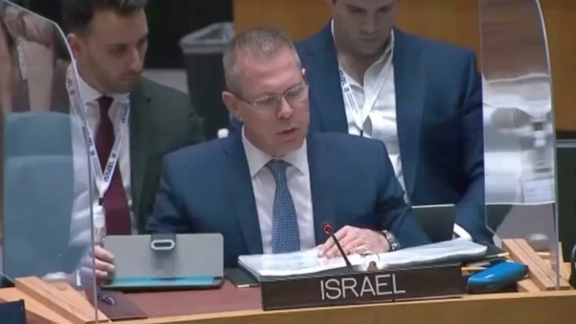
Israel’s envoy to the United Nations told Iran International that Tehran is continuing its violations of its international commitments and is getting closer than ever to a nuclear state.
Gilad Erdan said on the sidelines of a UN Security Council session that Iran is enriching uranium almost to military-grade, noting that “This is a clear threat to the security of our region and to the whole world. It needs to be addressed by this Security Council, and this Council is silent.”
Criticizing the UN Security Council’s for inaction against Tehran, he said during his address to the council, “when it comes to the situation in the Middle East everyone knows that the biggest threats to the region is the nuclearization of the radical Ayatollah regime in Iran as well as its terror funding and hegemonic ambitions.”
In an opinion piece published by the Time on Monday,former Israeli Prime Minister Ehud Barak said the efforts to block Iran from turning into a nuclear power are apparently headed for failure.
Echoing US Secretary of State Antony Blinken’s remarks eight months ago that if an agreement is not achieved within weeks, it might not be worth signing, he said that “That’s even more true today” as Iran “kept enriching uranium and has turned from a country that Russia was assigned to monitor into a country supplying Russia with armed drones.”
Defense Minister Benny Gantz said Tuesday that Israel has the ability to stop Iran’s nuclear development or merely delay it, noting, “Iran is a global problem. It is not just Israel’s private problem.”
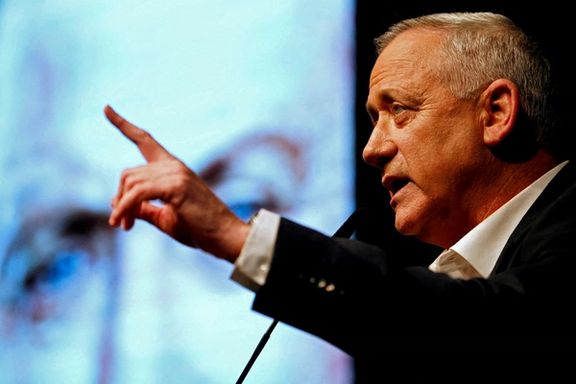
Former Israeli Prime Minister Ehud Barak says the efforts to block Iran from turning into a nuclear power are apparently headed for failure.
In an opinion piece published by the Time on Monday, Barak said the nuclear agreement – or the JCPOA – failed to delay Iran from having enough highly enriched uranium for nukes, and the 2018 US withdrawal from that same agreement allowed Iran to "legitimize” its progress toward "threshold nuclear" status. “In 2018 they were some 17 months away from that threshold. Today they are probably just 17 days away.”
Echoing US Secretary of State Antony Blinken’s remarks eight months ago that if an agreement is not achieved within weeks, it might not be worth signing, he said that “That’s even more true today” as Iran “kept enriching uranium and has turned from a country that Russia was assigned to monitor into a country supplying Russia with armed drones.”
Describing a new agreement as mainly aimed at keeping for appearances, he said such a deal provides “both sides a ‘denial umbrella’ for domestic needs — for the US, avoiding tougher realities and choices, and, for the Iranians, keeping sanctions at the lightest level possible.”
Noting that Iran will turn into a de-facto threshold nuclear state this summer, he said, “Both Israel and (for sure) the US can operate over the skies of Iran against this or that site or installation and destroy it. But once Iran is a de-facto threshold nuclear state this kind of attack simply cannot delay the Iranians from turning nuclear.”
Defense Minister Benny Gantz said Tuesday that Israel has the ability to stop Iran’s nuclear development or merely delay it, noting, “Iran is a global problem. It is not just Israel’s private problem.”
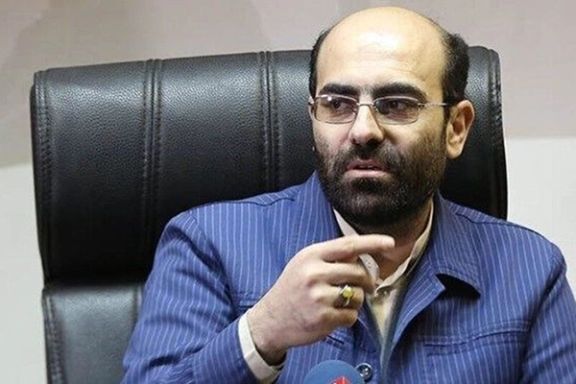
An Iranian lawmaker says the military cooperation between Tehran and Moscow has upset the political equations of the global order, confirming Russia’s request to buy Iranian drones.
Hadi Beiginejad, a member of the parliament's energy committee, told the Iranian government’s official website IRNA on Tuesday that Iran’s progress in the field of building unmanned aerial vehicles has significantly changed the country’s image in the international arena.
He said selling drones has strengthened Iran's ties with friendly countries, describing it as a beneficial factor for the peace and stability of the region.
He added that the United States has admitted to rise of Iran’s might in drone productions, and is well aware of the cost of dealing with Iranian drones in the region.
US National Security Adviser Jake Sullivan warned twice in July that Moscow appears to be looking at buying Iranian drones and Russian officers even visited a drone base in Iran’s Kashan to review their options. His statements hinted at possible training of Russian crews to operate the drones and said the this would cause more civilian deaths in Ukraine.
Meanwhile, the head of US Central Intelligence Agency, William Burns said on July 20, “It’s true that the Russians are reaching out to the Iranians to try to acquire armed drones,” Bloomberg reported. Secretary of Defense Lloyd Austin and Chairman of the Joint Chiefs of Staff Gen Mike Milley also confirmed that Russia is planning to obtain Iranian drones to strengthen its weakening position in battles.
An adviser to President Volodymyr Zelensky told Iran International on Monday that Russia and Iran are allies in the Ukraine war and it won’t be a surprise if Tehran supplies drones to Moscow.